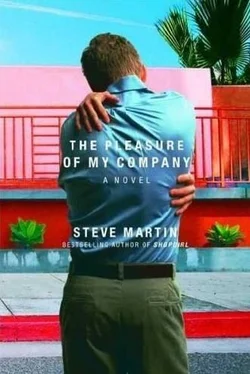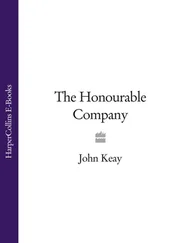Steve Martin - The Pleasure of My Company
Здесь есть возможность читать онлайн «Steve Martin - The Pleasure of My Company» весь текст электронной книги совершенно бесплатно (целиком полную версию без сокращений). В некоторых случаях можно слушать аудио, скачать через торрент в формате fb2 и присутствует краткое содержание. Жанр: Современная проза, на английском языке. Описание произведения, (предисловие) а так же отзывы посетителей доступны на портале библиотеки ЛибКат.
- Название:The Pleasure of My Company
- Автор:
- Жанр:
- Год:неизвестен
- ISBN:нет данных
- Рейтинг книги:5 / 5. Голосов: 1
-
Избранное:Добавить в избранное
- Отзывы:
-
Ваша оценка:
The Pleasure of My Company: краткое содержание, описание и аннотация
Предлагаем к чтению аннотацию, описание, краткое содержание или предисловие (зависит от того, что написал сам автор книги «The Pleasure of My Company»). Если вы не нашли необходимую информацию о книге — напишите в комментариях, мы постараемся отыскать её.
Martin's protagonist is a thirty-something single guy, Daniel Pecan Cambridge, whose life is constrained by his obsessive-compulsive behavior. Daniel informs us that his middle name originates from the pecan plantation his "granny" owns in Southern Texas, but we realize it is a fitting name for a "nut." Daniel is a cute one though, even despite his many quirks. His biggest obstacle, one that prevents him from venturing out on long walks anywhere, is his fear of curbs. To avoid them, he searches for opposing "scooped out driveways" in his California town, and draws mental maps that will take him successfully to his favorite hideout-the local Rite Aid. The Rite Aid with its clean lines and atmosphere is like heaven to Daniel and he never tires of walking the aisles, checking out supplies and the cute pharmacist, Zandy. "The Rite Aid is splendidly antiseptic," explains Daniel, "I'll bet the floors are hosed down every night with isopropyl alcohol. The Rite Aid is the axle around which my squeaky world turns, and I find myself there two or three days a week seeking out the rare household item such as cheesecloth." Among Daniel's other obsessions are ensuring that the total wattage of all the bulbs in a house equal 1125 and periodically having to touch all four corners of copiers at the local Kinko's.
No wonder then that Daniel finds his love life a bit constrained. He keeps himself happy by eyeing Elizabeth, the real-estate agent who often works across the street, by mixing drinks for his upstairs neighbor, Phillipa, and with his weekly visits by his caseworker, Clarissa. Of course, there is Zandy at Rite Aid. All along, Daniel supports himself on generous gift checks sent him by his grandmother in Texas.
Daniel is anything but an average guy but amazingly he wins the "Average American" contest sponsored by a frozen pie company. Daniel is such pleasant company, because for the most part, his outlook on life is always sunny and bright. For a brief moment, when he meets the other finalists of the essay competition, he is sad. "We weren't the elite of anything," he notes, "we weren't the handsome ones with self-portraits hanging over their fireplaces or the swish moderns who were out speaking slang at a posh hotel bar. We were all lonely hearts who deemed that writing our essays might help us get a little attention." However, this sinking feeling is only temporary and Daniel reminds himself that he only wrote the essay at the Rite Aid to have a "few extra Zandy-filled minutes."
It is hard not to make comparisons between Daniel and the autistic protagonist Christopher of Mark Haddon's The Curious Incident of the Dog in the Night Time. Like Christopher, Daniel has some curious insights about the world around him and these casual observations woven into the text make for delightful reading. Referring to his caseworker, Clarissa, Daniel observes: "She's probably reporting on me to a professor or writing about me in a journal. I like to think of her scrawling my name in pencil at the end of our sessions-I mean visits-but really, I'm probably a keyboard macro by now. She types D and hits control/spacebar and Daniel Pecan Cambridge appears. When she looks at me in the face on Tuesdays and Fridays she probably thinks of me not as Daniel Pecan Cambridge but as D-control/spacebar."
Towards the end of The Pleasure of my Company, the story moves along quickly. Daniel becomes involved with Clarissa in a way and they travel to Texas, both for their individual private reasons. By novel's end, Daniel has conquered his fear of curbs and Clarissa has accommodated his obsession with bulb wattage.
The Pleasure of My Company is a delightful novel as warm as the California sun. Martin has managed to capture in Daniel, the essence of a likeable zany man. Daniel's eventual success at having a happy life despite his many handicaps, is uplifting because it reminds us that life is not all bad all the time. It is always fun to root for the underdog and have him win. It might take some doing but Martin shows us that there are indeed "takers for the quiet heart."












